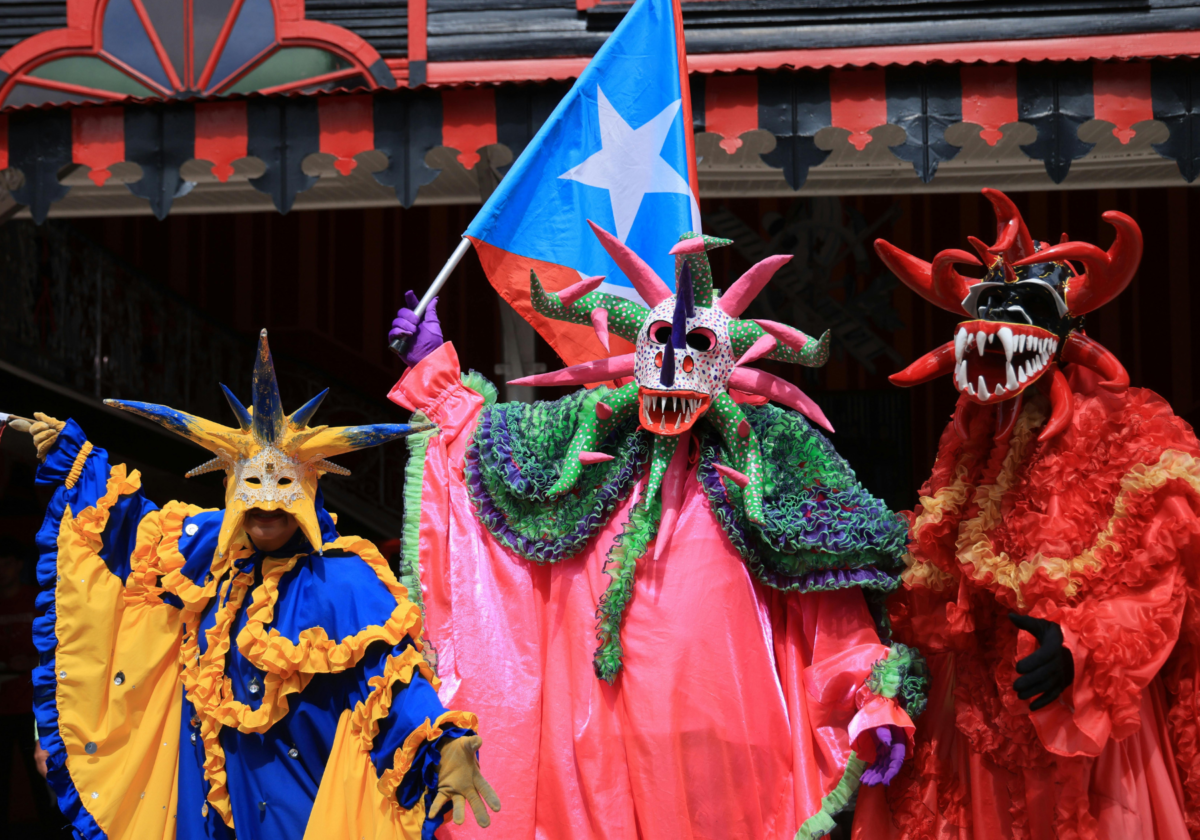Maria P. P. Root resides in Seattle, Washington where she is an independent scholar and clinical psychologist. She is a trainer, educator, and public speaker on the topics of multiracial families, multiracial identity, cultural competence, trauma, work place harassment, and disordered eating.
I found these at her site:
Bill of Rights for People of Mixed Heritage:
I HAVE THE RIGHT…
Not to justify my existence in this world.
Not to keep the races separate within me.
Not to justify my ethnic legitimacy.
Not to be responsible for people’s discomfort with
my physical or ethnic ambiguity.
I HAVE THE RIGHT…
To identify myself differently than strangers
expect me to identify.
To identify myself differently than how my parents
identify me.
To identify myself differently than my brothers and
sisters.
To identify myself differently in different
situations.
I HAVE THE RIGHT…
To create a vocabulary to communicate about
being multiracial or multi-ethnic.
To change my identity over my lifetime–and more
than once.
To have loyalties and identification with more
than one group of people.
To freely choose whom I befriend and love.
© Maria P. P. Root, PhD
Multiracial Oath of Social Responsibility:
I want to make a difference in this world. Therefore:
I strive to improve race relations.
I know that race and ethnicity are not solely defined by one’s genetic heritage;
I refuse to confine my choices in love or loyalty to a single race;
I make efforts to increase my knowledge of U.S. racial history;
I know that race and ethnicity can be used as political, economic, and social tools of
oppression.
I recognize the people who have made it possible for me to affirm my multiracial identity.
They are my relatives, friends, and mentors;
They are people who have crossed color lines to fight discrimination;
They are people who identified as multiracial before this choice was recognized;
They are people who have exposed and explained the suppression of multiraciality.
I must fight all forms of oppression as the oppression of one is the oppression of all.
I recognize that oppression thrives on fear and ignorance;
I seek to recognize my prejudices and change them;
I know that it is neither helpful nor productive to argue over who is more oppressed;
I recognize that my life interconnects with all other lives.
I will make a difference!
© Maria P. P. Root, PhD
50 Experiences of Racially Mixed People:
The 50 questions or comments and experiences evolved from a questionnaire I developed for a study on biracial siblings I conducted from 1996 to 1997. These questions and comments provide an introduction to the way in which race consciousness is brought up directly, sideways, and from all sides for people of mixed heritage.
These comments and questions, though not an exhaustive list, provide a window into how this country internalizes assumption about race, belonging, and identity. They socialize the mixed race person to understand as well as question race American style.
It is a monoracial system; one race per person. Not everyone experiences these questions or comments the similarly. One person might enjoy being asked, “What are you?” whereas their sibling might dread and resent the question. This list provides a launching point for sharing, discussing, laughing, debriefing, and educating.
1. You have been told, “You have to choose; you can’t be both.”
2. Your ethnicity was mistakenly identified.
3. People assumed your race to be different by phone than in person.
4. You are accused of not acting or wanting to be Latino, Asian, Black…
5. You have been told, “Mixed race people are so beautiful or handsome.”
6. Strangers looked between you and your parent(s) to figure out if you were related.
7. You have been told, “You don’t look Native, Black, Latino…”
8. You have been asked, “What are you?”
9. People say things they might not otherwise say if they knew how you identified racially.
10. You have been asked, “Where are you from?”
11. You have repeatedly been the recipient of stares or longer than passing glances from strangers.
12. You have been told, “You look exotic.”
13. Your choice of friends has been interpreted as your “selling out” or not being authentic.
14. You have been accused of “acting or wanting to be white.”
15. Judgments of your racial authenticity have been based upon your boyfriend/s or girlfriend’s (partner’s) race.
16. Comments are made about your hair or hairstyle, skin color, eye shape etc.
17. You have been subjected to jokes about mixed race people.
18. You have been told, “You think you’re too good for your own kind.”
19. Grandparent(s) or relatives don’t accept you because of your parents’ interracial relationship.
20. Your parents or relatives compete to “claim” you for their own racial or ethnic group.
21. You have been told, “You have the best of both worlds.”
22. You have been asked about your racial or ethnic heritage as an object of curiosity.
23. Upon meeting you, people seem confused by your last name. They do not think it “matches” you.
24. People assume you are confused about your racial identity or have had a hard time figuring it out.
25. People speak to you in foreign languages because of how they interpret your physical appearance.
26. You have been told, “Society doesn’t recognize mixed race.”
27. You have been told, “You aren’t really Black, Latino, Asian…”
28. You have been mistaken for another person of mixed heritage who does not resemble you.
29. You have been told you must be full of self-loathing or hatred because of how you racially identify yourself.
30. You have been told, “You are a mistake.”
31. Different people perceive your race differently based upon the company you keep.
32. The race people assign you varies in different parts of the U.S.A.
33. You have difficulty filling out forms asking for a single race.
34. You identify your race differently than others identify you.
35. You are told, “You aren’t like other Indians, Asians, Latinos…”
36. Your siblings identify their race differently than you do yours.
37. You have been called racial slurs of groups with which you do not share heritage.
38. Friends suggest that you date someone based upon the race or ethnicity with which they think you should identify.
39. Your parents identify your race differently than you identify.
40. You are told, “You aren’t Black, Latino, Asian…enough”
41. Your mother was assumed to be your nanny or babysitter.
42. A stranger assumes that your father is your “older boyfriend” or your mother is the “older woman.”
43. You were treated differently by relatives or your parents than a sibling on the basis of racial features.
44. You were well liked by peers but were not asked for dates.
45. You wish you were darker and try to get as much sun as possible.
46. People assume your father was in the military.
47. You have enrolled in Spanish language classes in order to develop the ability to say “Yes” to the question, “Do you speak the language?” and remove one of the blocks to authenticity.
48. Your otherwise friends become more distant when they think associating with you will make their racial authenticity or popularity questionable.
49. You have been knowingly approached and asked, “Your mother’s white (black, Asian), huh?”
50. You have tried to hide one or both parents from view of people who know you but are not your closest friends because you anticipate they will treat you differently.
© Maria P. P. Root, PhD





Oh wow. These are great. I'm printing these out to share with my boys when they are old enough. Thank you for sharing these!
Thank you! Just sent this to two generations of my family.
0807
air max 2014
nike free,nike free run,free running,free run,nike running
mont blanc
prada outlet
arizona cardinals jerseys
cheap nike shoes
cheap oakley sunglasses
the north face clearance
tim brown jersey,art shell jersey,kenny stabler jersey,john matuszak jersey,howie long jersey
michael kors uk
nike air huarache,nike huarache,nike huarache sneakers,nike huarache shoes
seattle seahawks jerseys
michael kors outlet, michaelkorsoutletonlinstore.us.com
chanel handbags
nike air max uk
dan marino jersey,louis delmas jersey,brent grimes jersey,cameron wake jersey,mike wallace jersey,dan marino jersey,cameron wake jersey
oakley sunglasses wholesale
tory burch outlet
ysl outlet online
coach outlet canada
supra shoes
patriots jerseys
oakley sunglasses, oakleysunglasses-outlet.us.com
christian louboutin shoes
boston celtics jersey
the north face outlet
hermes sale
michael kors outlet, michaelkorsoutletcanada.in.net
steelers jerseys
cheap oakley sunglasses
lebron james shoes
chanel handbags
michael kors outlet
denver broncos jerseys
michael kors handbags
nike air max uk
ralph lauren outlet
new balance 574
air jordan shoes
louboutin shoes
chicago bears jerseys
thomas sabo uk
kansas city chiefs jerseys
mlb jerseys
beats by dre
supra shoes
adidas wings
the north face jackets
marc jacobs
lululemon outlet
cheap nfl jerseys
kate spade outlet
snapback hats
futbol baratas
timberland shoes
cheap ugg boots, cheapuggboots.net.co
michael kors outlet
coach outlet online
ugg boots
cai2015810
futbol baratas
louis vuitton bags
canada goose outlet
nba jerseys
true religion jeans
michael kors online
ray ban sunglasses
cheap nhl jerseys
replica watches
beats by dr dre
roshe run
ugg boots
winter jackets
wedding dresses
michael kors factory outlet
fitflop clearance
lebron james shoes
michael kors outlet
louis vuitton handbags
michael kors outlet
20161.09wengdongdong
timberland boots
michael kors handbags
ralph lauren pas cher
adidas shoes
adidas uk
true religion
north face outlet
nike tn
coach outlet
jordan 8
canada goose jacket
ugg boots
coach outlet
louis vuitton outlet
ugg boots sale
kate spade uk
michael kors handbags
toms outlet store
michael kors outlet
moncler jackets
louis vuitton uk
fitflop uk
sac longchamp
moncler outlet
tommy hilfiger outlet
ugg boots
longchamp bags
fitflops clearance
ray ban sunglasses
nike outlet
cheap ugg boots
ralph lauren
new balance outlet
coach factory outlet
tiffany and co
michael kors outlet
true religion outlet
mcm
michael kors uk
adidas shoes uk
true religion outlet
true religion jeans
true religion jeans
true religion jeans outlet
true religion outlet
true religion jeans
true religion jeans
true religion canada
true religion outlet
true religion jeans
toms outlet
toms outlet store
toms shoes
toms outlet
timberland shoes
timberland boots
tiffany outlet
tiffany and co
tiffany outlet
tiffany jewellery
thomas sabo uk
thomas sabo outlet
swarovski outlet
swarovski crystal
swarovski outlet
swarovski crystal
swarovski outlet
swarovski crystal
swarovski jewelry
swarovski crystal
soccer jerseys
soccer jerseys wholesale
rolex watches
rolex uk
rolex watches
rolex watches for sale
ray ban sunglasses
xiezepeng 16 02 24
cheap oakley sunglasses
jordans shoes
toms outlet
air max 95
ray ban sunglasses
kate spade outlet
stephen curry shoes
ugg outlet
basketball shoes
longchamp
nike air max 90
michael kors outlet
hollister sale
reebok shoes
cheap oakley sunglasses
coach factory outlet
supra for sale
jimmy choo shoes
prada handbags
fitflops sale clearance
oakley outlet
michael kors purses
rolex watches
michael kors outlet
gucci outlet
calvin klein underwear
coach outlet
michael kors handbags
coach outlet online
vans outlet
oakley store
michael kors outlet
ralph lauren outlet
oakley outlet
coach outlet online
air jordans
micahel kors
lacoste outlet
ghd hair straighteners
michael kors
20163.26wengdongdong
20160326libinmichael kors clearance
nike mercurial
mont blanc pens
asics,asics israel,asics shoes,asics running shoes,asics israel,asics gel,asics running,asics gel nimbus,asics gel kayano
ralph lauren shirts
nike roshe run
football shirts
mcm outlet
christian louboutin shoes
michael kors outlet
true religion jeans outlet
christian louboutin outlet
tiffany and co
cheap nfl jerseys
nfl jerseys wholesale
pandora outlet
ray ban outlet
nike air max
links of london jewellery
louis vuitton bags
michael kors outlet online
futbol baratas
coach outlet online
rolex watches for sale
soccer jerseys wholesale
longchamp solde
hermes outlet store
michael kors wallet
swarovski crystal
links of london
ray ban sunglasses
oakley sunglasses
ralph lauren outlet
camisetas futbol baratas
michael kors outlet
chenlina20160618
coach outlet
jordan 4
nike basketball shoes
ray ban sunglasses outlet
michael kors outlet online
fitflops shoes
coach outlet store online clearances
tod's shoes
designer handbags
michael kors handbags
oakley sunglasses
coach outlet
louis vuitton outlet online
coach outlet
michael kors outlet
michael kors outlet
michael kors outlet
tory burch outlet online
christian louboutin sale
louis vuitton outlet
toms outlet
adidas originals store
vans shoes
ralph lauren outlet
oakley sunglasses
coach factory outlet
louis vuitton outlet
true religion sale
michael kors handbags
toms outlet
louis vuitton handbags
nike air max
michael kors outlet clearance
jordan retro
kd 8 shoes
toms shoes
coach outlet
ray ban sunglasses
polo ralph lauren
nike roshe runs
as
20160816 junda
true religion canada
canada goose outlet
nike air max 90
coach outlet
ysl outlet
ugg boots
michael kors handbags
michael kors outlet
ugg outlet
ferragamo shoes
michael kors factory outlet
coach outlet
soccer jerseys
louis vuitton outlet stores
cheap jordans
cheap nba jerseys
ray-ban sunglasses
cheap ugg boots
air max 90
jordan 4
nike air max 90
hollister clothing store
michael kors outlet
adidas wings
michael kors outlet online
michael kors bags
tory burch outlet
ugg boots uk
coach outlet online
michael kors outlet
louis vuitton outlet
dior outlet
michael kors outlet
uggs outlet
air max uk
ugg outlet online
ugg boots clearance
ugg australia
north face jacket
michael kors outlet online
moncler jackets
toms shoes
uggs on sale
ugg boots paris
ugg boots
louis vuitton
mlb jerseys
gucci outlet
michael kors outlet
cheap jordan shoes
michael kors outlet online
cheap true religion jeans
canada goose coat
ralph lauren outlet
ugg outlet online
cheap oakley sunglasses
louis vuitton uk
nhl jerseys
coach factory outlet online
ugg outlet online
rolex watches
uggs sale
true religion outlet
toms sale
gucci handbags
toms outlet
timberland shoes
celine bags
gucci belts
michael kors outlet clearance
tory burch shoes
louis vuitton handbags
ralph lauren polo shirts
louboutin shoes
christian louboutin
adidas nmd
chenlili20160820
converse shoes
cheap ray bans
nike air huarache
ray bans
fitflops
canada goose
jaguars jersey
adidas nmd runner
air force 1 shoes
ray bans
adidas neo
longchamp bags
adidas neo shoes
lacoste online shop
longchamp outlet
nike huarache
air jordans
lebron shoes
yeezy boost 350
michael kors outlet online
ralph lauren outlet
michael kors outlet store
los angeles clippers jerseys
michael kors outlet
oakley sunglasses
minnesota vikings jerseys
michael kors outlet
nike free
nike tn pas cher
sac longchamp